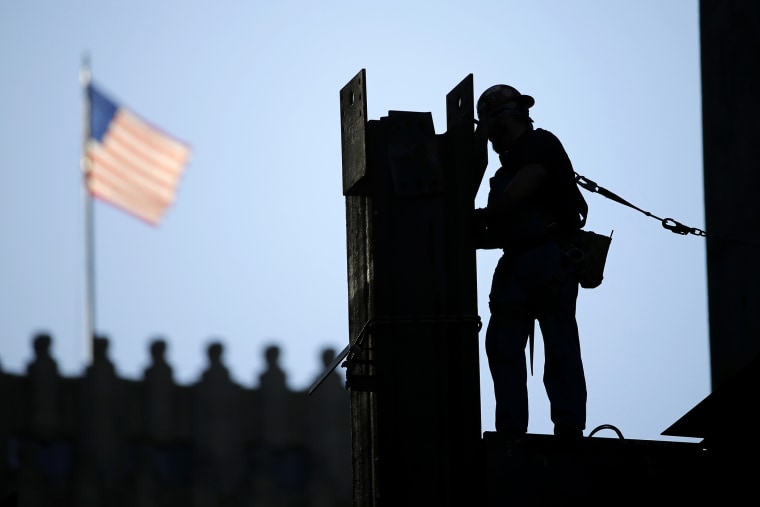President Obama finally killed the Keystone XL pipeline on Friday, ending a years-long evaluation process and infuriating supporters of the project, especially in the GOP. The move was a victory for environmentalists, who had protested the proposal for years, but the bigger angle might have been the economic gains that helped Obama abandon the project with minimal fear of political backlash.
Obama’s announcement came shortly after a new jobs report that showed the economy added 271,000 jobs in October and the unemployment rate fell to 5%. It also comes as gas prices are at their lowest levels in years. This week, the average cost of a gallon hit $2.20, a price not seen since 2004.
Whereas the Keystone issue was a powerful symbol to Republican critics of joblessness and high costs of living earlier in his presidency, the spate of recent good news gave Obama an easy counterargument on Friday.
RELATED: Obama administration rejects Keystone pipeline proposal
"While our politics have been consumed with whether this pipeline would increase jobs and lower gas prices, we have increased jobs and lowered gas prices," Obama said in his remarks on the Keystone decision.
In 2012, when Republican presidential nominee Mitt Romney frequently invoked the Keystone pipeline as part of his economy-focused attack on Obama’s record, gas averaged $3.60 a gallon according to the AAA – a new record. The unemployment rate was 7.7% in November 2012 after starting the year at 8.3%, and Romney was running on a pledge to get it down to 6% by 2017.
“I will build that pipeline if I have to myself,” Romney said in one April 2012 speech.
The case that the pipeline would significantly impact jobs or gas prices was weak, but polls showed the public in favor of building it and Republicans made a strong argument that any move that might help in tough economic times was worth trying.
If you had told Democrats in December 2012 about the economic conditions today, they’d probably assume they were heavy favorites to win again in 2016. The positive economic shift, which occurs in slow motion compared to the frenetic pace of day-to-day campaign news, may be the most under-appreciated factor in the election given the role it typically plays in presidential races.
RELATED: A big improvement: Pacing of hiring picks up
Jobs, the undisputed top issue in 2012, often take a backseat to wages and inequality in candidate’s speeches now. The percentage of Americans who name economic issues as their top national concern in Gallup surveys has plummeted since Obama’s re-election.
The political situation has changed from 2012 in other ways, though, that could make it harder for Democrats to capitalize. The economy was the primary drag on Obama then, while foreign policy seemed like a net plus for a president who had killed Osama bin Laden. Now many of the GOP candidate’s most cutting attacks are on Obama and Hillary Clinton’s record on Syria, Iraq, Russia and China.
Not only that, some political scientists see relative economic growth in the first half of an election year as most important factor in boosting an incumbent – meaning that if, say, the Fed raises rates and the economy slows in the first months of 2016, Democrats could still end up on the defensive despite the last few years of gains. Still, it’s worth taking a moment to reflect on the glacial shift in the economic environment has taken place since the last election – and how unlikely it seemed just four years ago.
